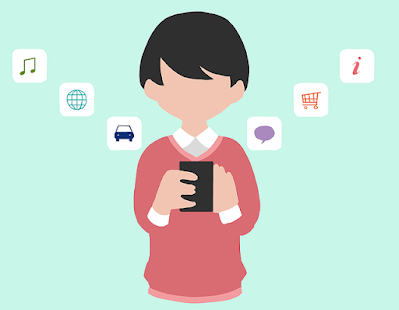Why You Should Pay Close Attention to Android App Permissions
With Android, you give apps different rights. You organize these rights via app permissions. But how exactly does it work? AppStudio explains it. Today user privacy is a trendy subject and more and more users are getting sensitive about it. As a developer, we always prioritize user-privacy and build apps by integrating outstanding security measures. Let’s dig deep into the subject!
Android App Permissions: You Should Pay Attention to This
Apps can be given different permissions. Think of access to your camera or your storage. This is necessary to use certain functions. For example, access to your microphone to store voice messages, access to your location to track a run, and access to your storage to store data.
Be Careful When Giving Permissions
When using Android, it is important to keep a close eye on what you are actually giving access to. For example, do you give rights to an app to use your microphone, while the app doesn't need it at all? Then there is a chance that the application will listen to you, without you noticing it. If you give access to your location when the app does not need it, the app can always see where you are. Some neatly explain why they need certain permissions during installation. Otherwise it is told in the Play Store. To find this information, go to the app's page in the Play Store, go all the way down and choose 'Developer information' under 'Developer'.
Are you in doubt? Then you can choose not to give permission and see if the app still works. It is always possible to revoke or grant rights later. Apps can request the following rights:
Camera: The app can look through the camera and possibly record these images.
Microphone: The app can listen through the microphone and possibly record the audio.
Phone: The app can make a phone call itself (this can cost money).
SMS: The app can send an SMS itself (this can cost money).
Contacts: The app can see your contacts, for example to link them to acquaintances who use the same service. Contacts can also be added with this permission.
Agenda: The app can read your agenda and add items.
Location: The app can see where you are.
Storage: The app can store, modify, and delete data for that app.
Body sensors: The app can use the different sensors that monitor movements.
Permissions When Downloading and Installing an App
Almost every time you install an app, you are asked for certain permissions. Sometimes when installing and other times when you first open the app. Instead of clicking directly on accept, you should consider whether the app really needs the rights.
Is an app getting an update that suddenly requires new permissions? Then you will receive a notification with the choice whether you want to give these rights or not. Sometimes the update cannot be installed without those permissions.
Read Also : Android 11 Features that Impact on your Mobile Apps in 2020
How Should Developers Work with Android App Permissions?
Use Them Wisely
Why do you need app permissions? Every business has different needs and must be studied well to avoid certain app permissions. There is no need to get users' data for increased functionality. However, sometimes it becomes necessary. AppStudio Canada uses app permissions wisely and according to your project.
Communicate and Show Transparency
If your app needs certain data, it must be to increase user experience. Talk to your customers, explain to them well why you are demanding certain app permissions. Be transparent and communicate with your clients and their customers in a simple but effective way.
View App Permissions and Adjust Permissions
Do you want to see what rights the different apps have on your smartphone? Then you go to permission management on your smartphone. To do this, go to the settings menu and search for 'Apps' or 'App management'. Then tap on 'App Permissions'. Can't you find it? First go to 'Privacy and security' and then to 'App permissions'.
Here you can see per category which apps can use that specific permission and how many apps you have actually given access. If you open a category, such as 'Location' or 'Phone', there is a list of apps that have access. You can withdraw this access via the switches on the right.
Looking for more? On AppStudio, we consider the most important issues about the security of your smartphone. We take privacy very seriously and develop our AppStudio apps accordingly. Are you starting a mobile app project? We create state of the art mobile apps by adopting agile methodology. Talk to us to have information regarding app permissions and how to carefully use them to maximize downloads.





Comments
Post a Comment